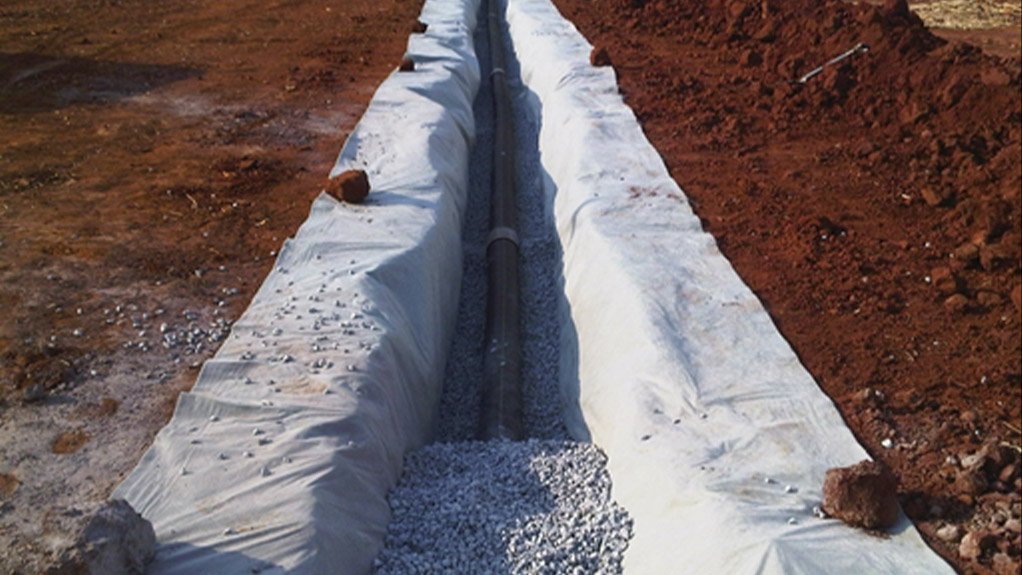
From the Durban Harbour quay wall, in KwaZulu-Natal, to the Glen
Shopping Centre, in Gauteng, Durban-headquartered geosynthetics manufacturer
and supplier Kaytech’s all-purpose geotextile bidim, is the first geotextile
used in South Africa.
Introduced by Kaytech in 1971, bidim was the first nonwoven geotextile
ever made and the company remains the only manufacturer of the continuous
filament, spunbond, needle-punched nonwoven geotextile in Africa.
Bidm was developed by French company Rhone Poulenc in 1968 initially as
a separation layer between selected material and insitu soil in road
construction, says Kaytech marketing coordinator Philile Mphemba.
The product has not changed significantly since, but has been refined due
to the many innovations and modifications made to the manufacturing process
over the past 45 years.
These include improved polymer extrusion, drawing of the filaments,
laydown of the batt, double needling thereof, and a new compact wind up system
of the final bidim geotextile.
These changes to the manufacturing process have resulted in better
modulus of deformation and plastic yield stability, as well as a higher
breaking strength; improved resistance to high temperature, with a melting point
of 260 °C; reduced ultraviolet-induced degradation and better wettability.
The raw material used to manufacture bidim is derived from locally
sourced pre- and post-consumer recycled plastic (polyester) water and cold
drink bottles.
Manufactured in Atlantis, up the West Coast from Cape Town, bidim is
produced by one continuous process, the spunbond process, whereby continuous
filaments are spun from molten polyester, drawn and cooled before being
deposited onto a collecting belt to form a web, which is then needle punched to
mechanically bond the filaments together to form a finished fabric.
Kaytech distributes bidim across Southern Africa, with the greatest
demand for the geotextile in road construction and maintenance, as well as
municipal, industrial and mining waste containment.
“However, owing to the current state of the civil engineering
construction industry and the lack of government infrastructure spending, the
demand for all types of geosynthetics, including bidim, is depressed,” says
Mphemba.
But the recent announcements by State-owned company South African
National Roads Agency Limited (Sanral) regarding the upgrading of various
National Routes will hopefully help to alleviate the situation. Sanral
announced in June that at least five tenders for the upgrade of the N3 and N2
highways in KwaZulu-Natal.
Nonwoven geotextiles are manufactured worldwide, although most produce
staple fibre, polypropylene nonwoven geotextiles. Other than Kaytech, only a
handful manufacture continuous filament, polyester, needle punched, nonwoven
geotextiles, similar to bidim.
Mphemba says the US is among the largest markets for geotextiles, owing
to it being highly developed. However, owing to its sheer size, China has the
greatest demand.
Kaytech uses independent laboratory Geosynthetic Laboratory to test its products and samples from the field. The South African National Accreditation System-accredited laboratory in Pinetown is the most advanced geosynthetics testing laboratory in Africa. It is affiliated to a similar facility in Albury, Australia.http://www.engineeringnews.co.za/article/kaytech-remains-only-african-producer-of-bidim-2019-09-27

